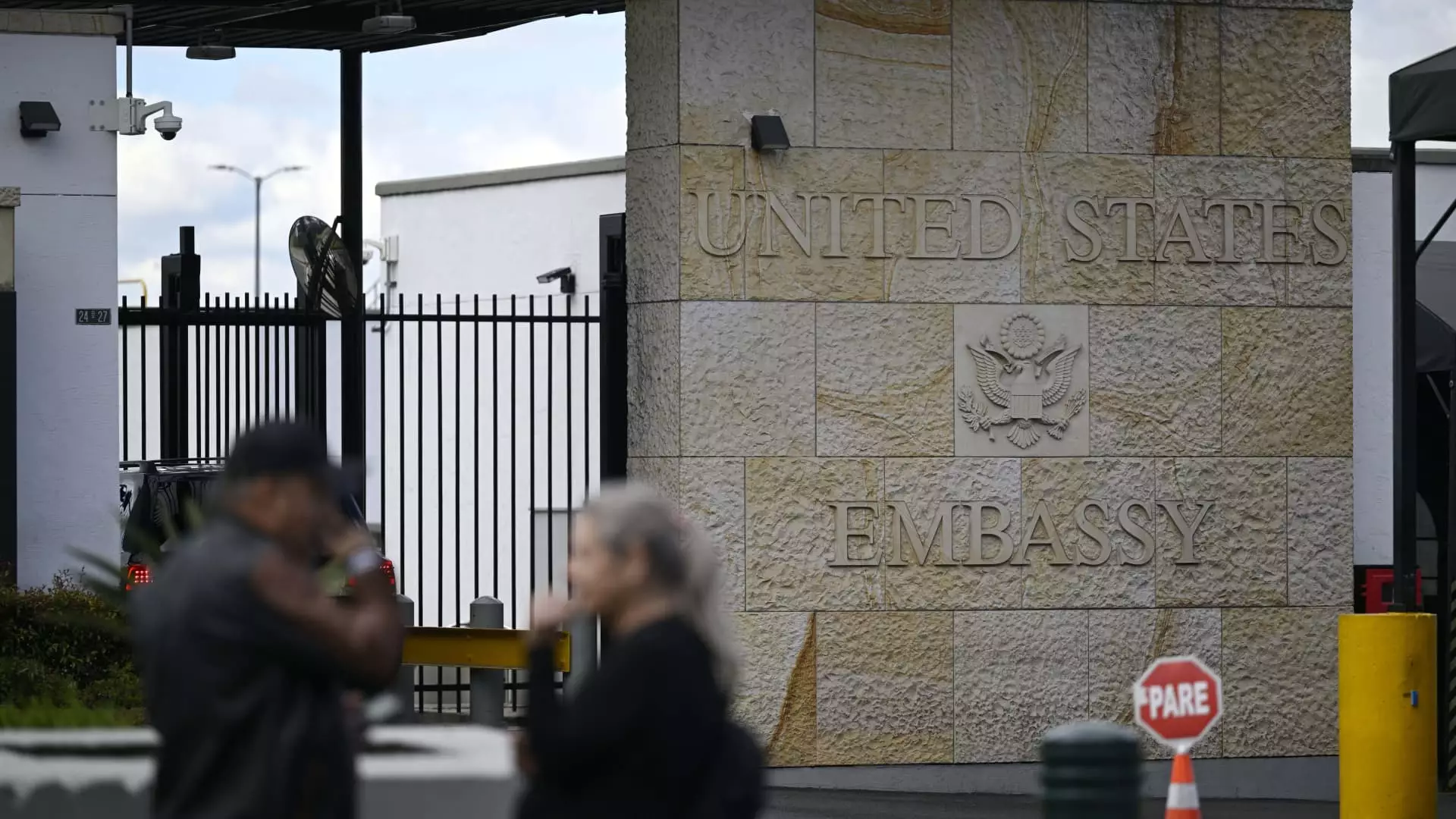In a strategic move, the Trump administration has initiated plans to scale back staff at U.S. embassies globally. This shift, aimed at restructuring the diplomatic corps, signifies a broader attempt to streamline operations while reinforcing an “America First” approach to foreign relations. As reported by multiple sources familiar with the situation, the direction is clear: embassies are expected to prepare for a reduction of both American and locally employed staff by approximately 10%. The stipulated deadline for compiling an employee list for the State Department fuels speculation about the overarching motivation behind this operational shift.
Trump’s administration appears to be driven by a vision that prioritizes efficiency and loyalty, suggesting a desire to align the State Department more closely with the current political ideology permeating the White House. The directive to streamline embassy operations is not merely administrative; it symbolically echoes the administration’s inclination to challenge the status quo of diplomacy that has evolved over decades.
A Shift in Diplomatic Philosophy
The announcement and ensuing actions underscore a seismic shift in how the U.S. federal government perceives diplomacy. Traditionally, diplomatic roles have embodied continuity, employing career diplomats skilled in international relations and collaboration. Conversely, the current administration emphasizes the need for personnel who align closely with Trump’s foreign policy agenda, which prioritizes national interest over multinational cooperation.
By mandating a review of the embassy workforce, the Trump administration has inadvertently raised questions about the qualifications and experiences of career diplomats who may not fully endorse or support these political objectives. The risk here lies in fostering a bureaucratic culture that penalizes dissent and encourages compliance to a singular vision of diplomacy.
The cuts come alongside a series of broader initiatives, including an executive order signed by Trump that instructs Secretary of State Marco Rubio to revamp the Foreign Service. The order’s language hints at a beleaguered move away from traditional diplomatic conduct, suggesting that failure to adhere to the president’s directives might lead to potential disciplinary actions, including termination. This fosters an environment of apprehension among diplomats who may fear for their careers based on their adherence to or dissent from the administration’s policies.
Additionally, the opportunity to reform longstanding guidelines, such as the Foreign Affairs Manual, signals a clear interest in altering the U.S.’s diplomatic framework fundamentally. There lies a noticeable tension between innovation and the foundational principles of diplomacy, raising concerns about the quality and effectiveness of future diplomatic engagements.
Recent actions have also seen noticeable reductions in support staff beyond typical embassy operations. Reports indicate that around 60 contractors from the State Department’s bureau focused on Democracy, Human Rights, and Labor have been dismissed, with further cuts anticipated throughout various other sections of government. These reductions in contracted support can disrupt critical operations that bolster U.S. foreign policy initiatives, particularly those involving sensitive areas such as human rights advocacy.
The dismantling of the U.S. Agency for International Development (USAID) also illustrates the administration’s strategy to challenge established agencies contributing to global humanitarian efforts. The role of contractors and support staff in international relations is often underappreciated; thus, diminishing their numbers risks compromising the U.S.’s ability to respond effectively to global challenges.
As the Trump administration pushes forward with its plan to reform the diplomatic landscape of the United States, the implications of these staff cuts extend beyond mere numbers. The emphasis on political loyalty over diplomatic expertise could have profound ramifications on how the U.S. is perceived globally. An era marked by a contracting diplomatic footprint could ultimately lead to diminished influence on the world stage, breaking down decades of diplomatic progress and cooperation.
While streamlining operations might yield short-term gains in efficiency, the broader impacts on American diplomacy, global relationships, and norms may leave an indelible mark. It calls into question how future administrations will reconstruct these institutions and whether they will be marked by the same ideological constraints.

Leave a Reply